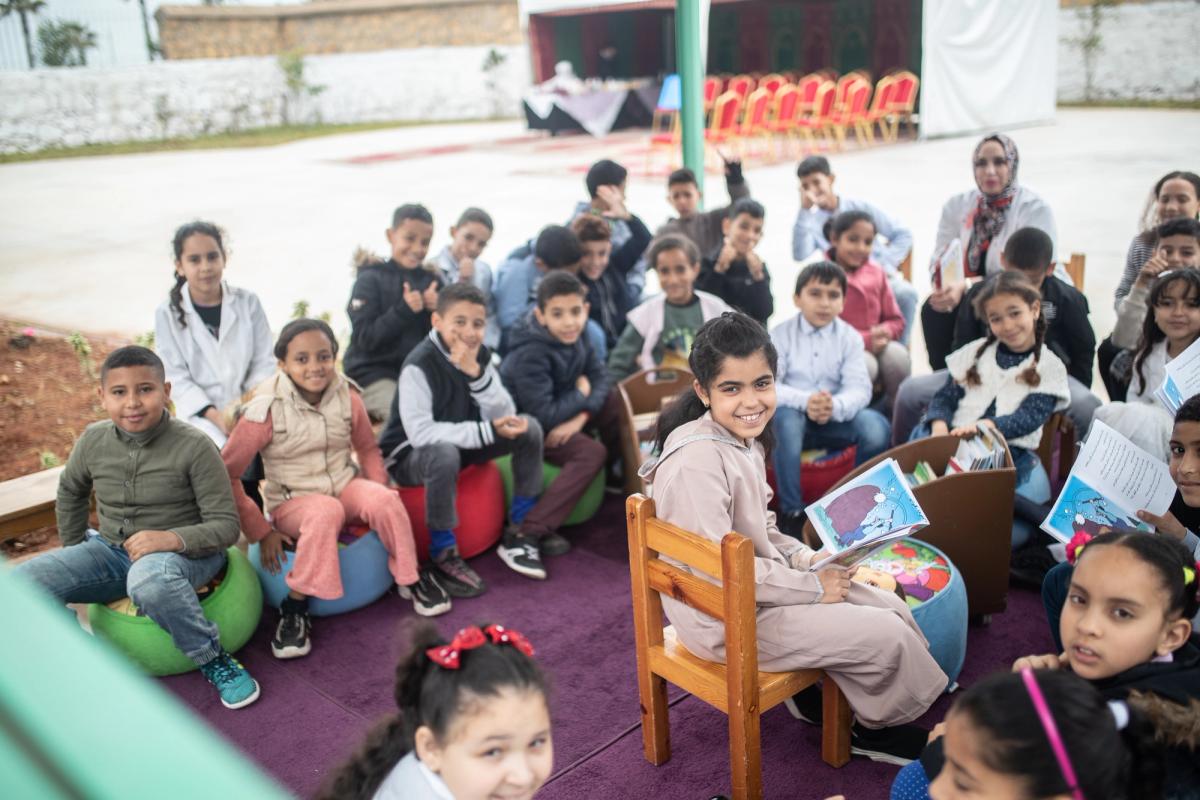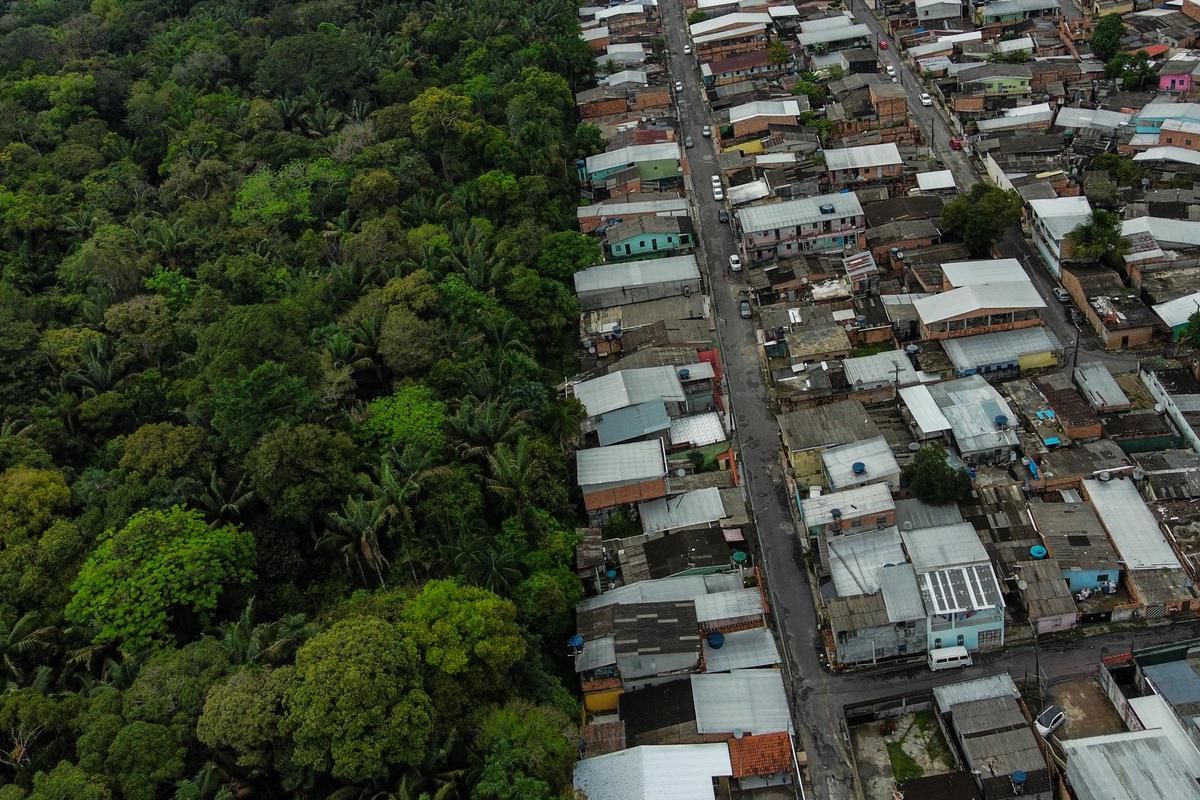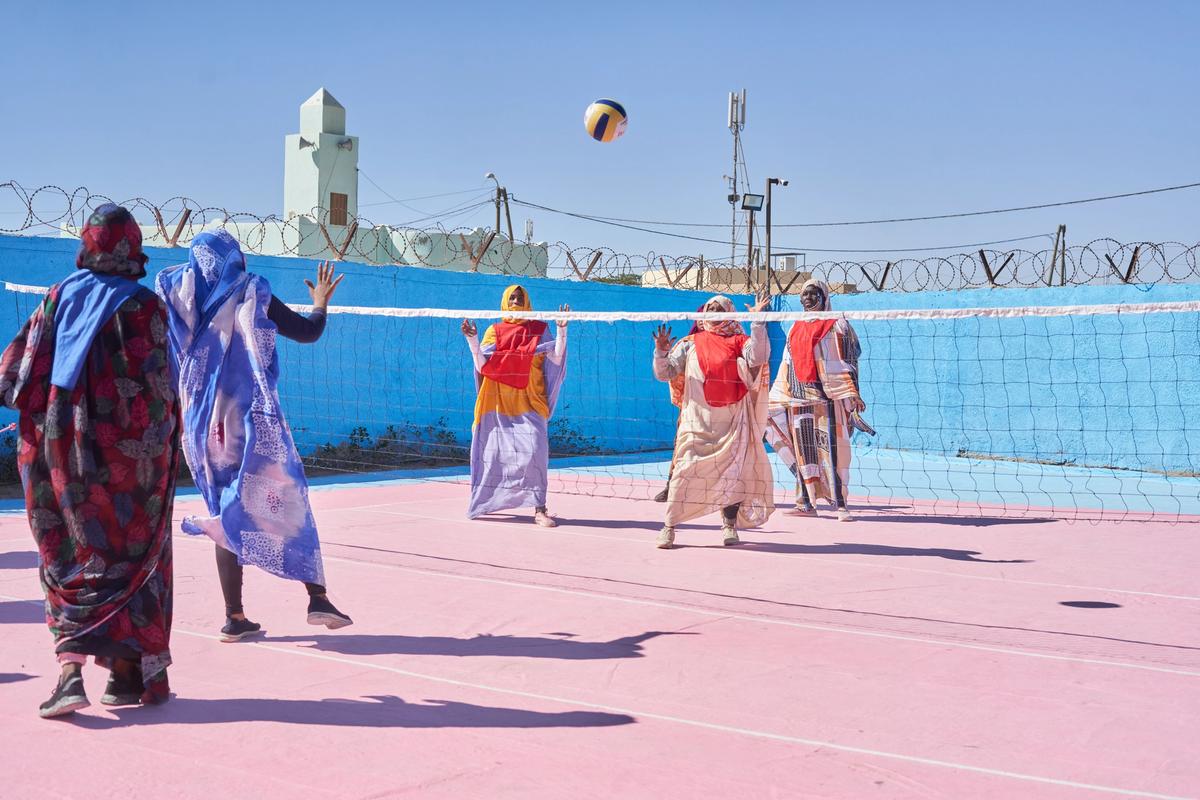
Morocco
Corporate Social Responsibility
Environmental sustainability and philanthropic initiatives are at the core of the IMF’s corporate social responsibility program.
Environmental Sustainability
The IMF is committed to reducing the impact of its operations on the environment. As the institution emerges from the pandemic and resumes normal operations, climate change remains a major threat to long-term growth and prosperity. In light of this threat, the IMF has expanded its work on climate change and support to member countries in adopting and implementing mitigation and adaptation policies. The institution is also taking steps to advance its operational environmental sustainability goals.
Since 2010, the IMF’s carbon footprint has been actively measured, and steps have been taken to reduce emissions. Significant emission reductions have been achieved in headquarters operations, but stepped-up engagement with member countries has resulted in an increase in emissions from business travel. In 2021, the Environmental Sustainability Council was established as a significant step to reduce the impact of the IMF’s operations. The council is charged with advising and providing guidance to IMF management on the operational environmental issues facing the organization—a critical step in the establishment of milestones and targets to better measure progress.
With the resumption of normal operations, IMF staff members have returned to headquarters and field offices, and mission travel has fully resumed. As a result, the IMF’s carbon footprint has increased significantly from its pandemic-related lows (see Figure 3.2). Even so, total emissions and emissions per IMF employee remain significantly below pre-pandemic levels, which largely reflects less employee commuting in the post-pandemic work environment and less mission travel. Further increases are expected, however, in 2023.
Figure 3.2
Absolute IMF Greenhouse Gas Emissions and Emissions per IMF Employee, 2010–22
Total emissions from 2022 are 64% of the pre-pandemic emissions of 2019, and the per employee emissions for 2022 decreased 44% compared to 2019.
Source: IMF, Corporate Services and Facilities Department.

Giving Together
Giving Together, the IMF’s philanthropic program, is supported by donations from employees and retirees, as well as corporate matching funds.
Over the past few years, multiple crises, including climate-related disasters, Russia’s war in Ukraine, and a cost-of-living crunch, have compounded the challenges faced by people around the world. The IMF community responded to these humanitarian challenges with tremendous support in FY 2023. Total donations from employees and retirees, IMF corporate matching, and Giving Together grants and donations resulted in the program’s providing more than $5.2 million to charitable causes during the financial year. This includes $4.75 million in donations from employees and retirees and IMF corporate matching (see Figure 3.3).

Giving Campaign and Disaster Relief
About 64 percent of staff members contributed to the FY 2023 Giving Campaign between November 1, 2022, and January 6, 2023. Together with retirees, they raised $3.3 million in donations and matching funds to support organizations in the Washington, DC, metropolitan area and across the globe.
In addition, the IMF’s Giving Together program organized fundraisers to support relief efforts for natural disasters in Malawi, Mozambique, Nigeria, Pakistan, Syria, Türkiye, and Yemen. More than $600,000 in combined contributions was channeled to international relief organizations providing critical aid and support to affected children and families on the ground in these countries.
Grants and Corporate Donations
The IMF strives to help charities in the Washington, DC, metropolitan area and in communities around the world emerge from poverty and crisis by supporting community initiatives through partnerships and annual grants. In FY 2023, Giving Together grants and corporate donations to charitable organizations worldwide amounted to $455,000. Many of the year’s grants focused on programs and services that supported communities of color, women, and youth. In total, grants were awarded to 35 organizations serving disadvantaged populations in 16 countries across four continents.
Senior management provided corporate donations totaling $120,000 during mission travel to developing economies, including Bosnia and Herzegovina, Cameroon, Chad, Dominica, Mauritania, Moldova, Morocco, and Zambia, to support grassroots charities.
Volunteering
As restrictions around the COVID-19 pandemic eased, IMF staff members found ways to make an impact in their communities through volunteering. Whether individually or as part of a group, IMF staff members engaged in various philanthropic activities during the year, including packing hygiene kits for the victims of humanitarian crises and donating bicycles to people in developing economies.
In addition, in honor of the Martin Luther King Jr. Day of Service, staff members participated in a volunteering event organized by the Giving Together program in partnership with Horton’s Kids and Nourish Now, two nonprofit organizations committed to improving the health and wellness of at-risk children and families in underserved neighborhoods in the Washington, DC, area. Staff members assembled nonperishable ingredients needed to make a healthy and nutritious recipe that families could easily cook at home.
Diversity, Equity, and Inclusion
In August 2022, the IMF completed the Economic Dividends for Gender Equality certification for the third time. In both 2017 and 2019, the IMF was certified at the first of three levels, “EDGE Assess.” Recognizing the progress of the past several years, auditors approved by the Economic Dividends for Gender Equality (EDGE) Foundation awarded the IMF the second level of certification, “EDGE Move.” The Diversity and Inclusion Office presented the 2022 Diversity and Inclusion Update to the Executive Board in January 2023. The update included a summary of the IMF’s progress toward the 2025 benchmarks, key initiatives undertaken since the 2020–2021 Diversity and Inclusion Report, and an action plan for the next two years. The shares of staff from underrepresented regions at individual contributor and managerial levels continue to increase; however, progress is uneven, and more effort needs to be made to achieve managerial-level benchmarks by the end of FY 2025. Recruitment missions have returned to an in-person format, and the IMF is leveraging the lessons learned during the pandemic by continuing to reach out to broader candidate pools through virtual engagements. The IMF continues to make good progress on gender balance, particularly at the most senior level, where women hold 40 percent of roles as heads of departments. It is expanding the scope of its diversity and inclusion efforts to include race and ethnicity, as well as striving for an accessible and inclusive work environment for all, including those with disabilities.
Figure 3.3
Donations and Matching Funds
(Millions of US Dollars; FY 2016-2023)
Source: IMF, Communications Department
Among the recipients of the Giving Together program in FY 2023
raised to support humanitarian and disaster relief efforts
in grants to charities worldwide awarded to
organizations across
continents